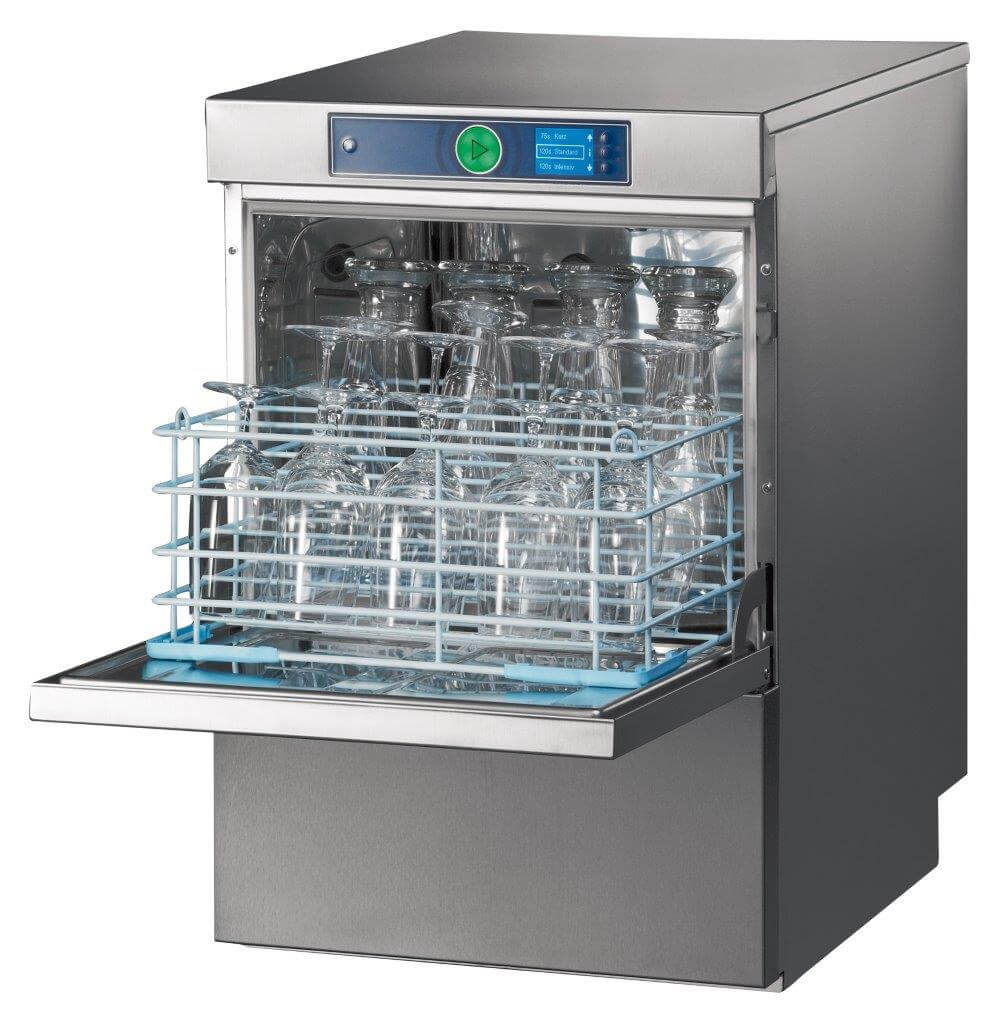Glasswashers are machines specifically designed to clean wine glasses, mugs and other glasswares. They are meant for establishments that serve a large number of drinks and beverages.
Advantages of Using Glasswashers
Typical home dishwashers handle both plates and glasswares for practicality. However, food service businesses must treat them differently. Doing so brings the following benefits:
- Increased efficiency,
- improved sanitation, and
- extended lifespan of the tableware.
Plates and cutlery endure tougher grease and rough handling. They require higher water pressure, stronger detergents and longer cleaning time. Glasses meant for beverages are easier to clean but need more delicate management. Washing drinkware similar to plates could lead to streak marks and breakage. Think of crystal wine glasses and how easy it is to crack one. Efficiency is also improved if glasses are allowed to have faster cycle time.
Types of Commercial Glasswashers
There many types of glasswashers Australia restaurateurs can choose from. Each has their own strong points and disadvantages.
In Sink Glasswashers fit in standard kitchen sinks. These washers are very portable. They rely on water pressure to operate yet saves up to 70% water when compared to manual washing. They are enough to remove lipstick and other drink contaminants. No special plumbing is needed to install and do not need electricity to do its job. These made them ideal for events, even in an outdoor setup. They are also a good choice for bars that primarily serve beer.
In sink glasswashers can be used with delicate glassware. This is because it employs brushes to clean instead of high water pressure and chemicals. The glasses are washed individually. User holds each item as it goes through the cleaning process. The cycle is done in seconds but the per piece approach limits their practicality to small bars.
A safety reminder, this type of glasswasher requires frequent extensive cleaning. It is prone to growth of microorganisms, especially at the base of the brush. Also note electric versions are available if desired.
Under Counter Glasswashers handle 30 racks per hour on the average. This capacity is enough for mid-sized establishments that get fully occupied on selected hours in a day. Models may use heater water or chemicals to sanitize the wares.
Cold Rinse Glasswashers wash the glasses once but rinse them twice. The first rinse uses hot water, the second with cold water. The main benefit is cooled drinkwares ready for use without the streak marks. The downside is relatively high utilities consumption.
Wash and Dump Glasswasher are the traditional equipment used in medium-sized restaurants. They take in new water for every cleaning cycle. High water costs associated with its operation makes them unpopular to new establishments.
Recirculating Glasswashers offer the latest improvements in commercial glass washing. They are more expensive than traditional fill and dump machines. They do not rely on the tap for hot water, being able to heat the water on their own. This means higher power consumption and may need more expensive electrical setup.
Reduced water use is the key advantage of recirculating glasswashers. Some models use less than two liters of water per cycle. Thousands of dollars are saved in water bills in a year, making up for the high unit price and installation cost. It also means that they are ideal in areas that suffer low water pressure. They are also credited as an environment-friendly alternative for using less water.
Despite clear disadvantages, some still prefer to use wash and dump over recirculating models. Upfront costs are major considerations. Electrical setup required by recirculating washers may not be feasible in some kitchens.
Conveyor Glasswashers cleans up to 2,000 glasses every hour. Designed to handle heavy loads, they are typically made of durable stainless steel. Hotels, hospitals and schools are the primary users. But they are also used in medium to large-sized restaurants. Aside from pass-through versions, rotary conveyors are available to fit in tight spaces. Some models provide a final cold water rinse, ready for immediate use.
High capacity entails high unit price and installation costs. Installing conveyor glasswashers requires four connections — hot water, cold water, electrical and drain.
Choosing the Right Solution
There are many factors to consider in choosing the right type of glassware. Make sure yours include:
- Capacity. Planning should include a gap between projected peak hours. The number of available glasswares should cover peak customer demand. Will there be enough if glasses are not immediately ready after washing?
- Operation. A large centralized kitchen, or small specialty bars across the space? More beer mugs or tequila shots?
- Upfront Cost and Operating Cost. Working with a well-planned budget can help narrow down the choices. A new dining concept is a high-risk venture. Maybe it’s better to go for the low upfront cost.
- Kitchen Setup. Availability of electrical sources, drain, and hot and cold water pipes all affect the placement and size of equipment that can be used. Installation expenses escalate for poorly planned kitchens. A previously-owned facility limits the options on where the glasswasher can be placed. Operation is hampered if glasswasher door blocks the path of kitchen staff.
- Glasswares. Quick temperature changes could break delicate glass. Make sure the wine glass can handle the hot and cold rinse it will be subjected to.
- Noise. Consult the agent on noise generated by the planned glasswasher purchase. This is a must if it is to be installed in areas close to customers. Select quieter models if needed. Sound-proof the cabinets that covers the under counter glasswashers.

